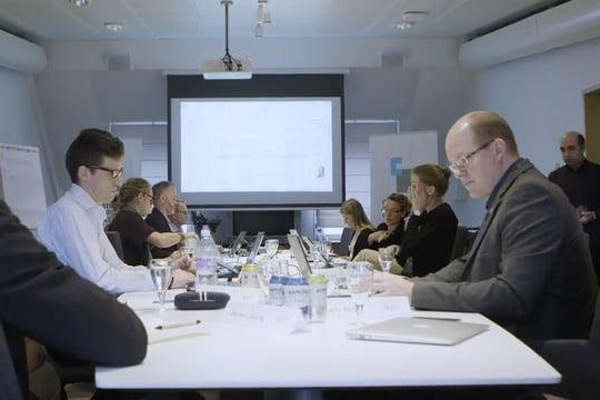
Experts start work on key carbon infrastructure project
LONDON, July 1, 2017
Leading global industry experts are working on the Carbon Infrastructure Transformation Tool (CITT) project to develop an open access solution for calculating and managing embodied carbon emissions across the lifecycle of infrastructure projects.
The project has secured funds from the Construction Climate Challenge (CCC) which is being hosted by Volvo Construction Equipment. The research is jointly performed by the University of Edinburgh Business School, Costain Group and Skanska UK.
In late April, the project conducted its first workshop to introduce the tool to key industry bodies and gain feedback to develop and improve the tool further.
The workshop saw attendees from across the infrastructure industry spectrum in the UK participate in interactive workshop sessions around the development and deployment of the tool.
Discussions on barriers to adoption in the industry provided the research team with key focus areas to further develop their solution.
"A number of large challenges have manifested themselves since the project began. Supply chain events such as this one are crucial in building the will across stakeholder groups to rise to these challenges and provide solutions required to make the project a success. We can’t do it alone," remarked Damien Canning, the head of Technical Sustainability at Costain Group and industry specialist for Carbon Management for CITT.
His project colleague Dr Matthew Brander, a lecturer at the University of Edinburgh Business School and project manager for CITT pointed out that the workshop was hugely useful in terms of getting industry input to the project.
"One very positive feature of the workshop was the spirit of collaboration across the participating companies and stakeholders. There is a shared vision that the sector as a whole needs to work together to deliver low carbon practice”, he stated.
During the workshop a ‘landscape’ mapping exercise was undertaken to identify all the existing software, initiatives and standards that either complement or overlap with the project. One of the key challenges identified for the CITT project is that different companies have invested in proprietary software tools and may therefore be reluctant to transition to an alternative.
“Although companies have their own proprietary tools, one of the main benefits of the CITT tool, identified by the workshop participants, is the potential for creating a platform that is common across sector,” remarked Dr Brander.
The CITT project will run for three years. The final tool will pinpoint opportunities to reduce carbon through innovation and supply chain engagement. The project is a close collaboration between academia and the infrastructure sector, he stated.
According to him, the next step is to invite more infrastructure stakeholders engaged on project design and delivery to trial the tool, so that the development team can gain a better understanding of key challenges to address in future iterations. In September a second workshop will be held, he added.-TradreArabia News Service







